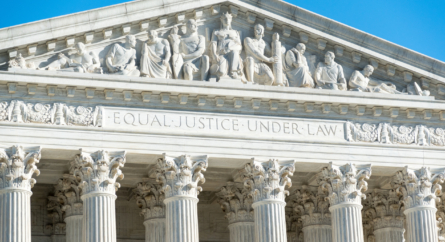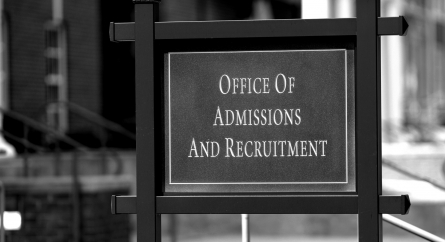Supreme Court Allows West Point to Continue to Use Race in Admissions (For Now)
On June 29, 2023, admissions policies and practices of many higher education institutions were forced to pivot when the U.S. Supreme Court ruled that using race to make admissions decisions violated the Equal Protection Clause of the 14th Amendment. On February 2, 2024, the Court allowed for an exception to this policy, permitting military academies to continue considering race in deciding which students to admit. Whether that exception will endure remains to be seen.
Background: Military Academies Exempt from Previous Decisions Regarding Affirmative Action
The June 29th decision, Students for Fair Admission vs. the President and Fellows of Harvard College (SFFA v. Harvard), ruled that the use of race in admissions at both Harvard University and the University of North Carolina (UNC) was unconstitutional, invalidating similar admissions practices used by many schools. In a footnote to the written decision, the Court left open the question of how or if military academies might differ from private or state-affiliated institutions in this regard. In fact, West Point itself submitted a brief arguing that race should be considered in higher education admissions to contribute to the “diverse pipeline of leaders” needed for an effective military. While the Court rejected this argument as applied to Harvard and UNC, it deferred decision as to whether military academies were exempt from the holding in SFFA v. Harvard, in light of the “potentially distinct interests” of such institutions. Military academies may have a particular interest in developing an officer corps whose diversity matches that of the troops that they lead, for example.
The Court Temporarily Rejected SFFA’s Request to Stop West Point from Considering Race
Unlike many other colleges and universities across the country, West Point did not change its admissions policies in the wake of SFFA v. Harvard and instead continued considering race as a factor in its admissions. In September 2023, the Students for Fair Admission (SFFA) group sued West Point, challenging this practice.
SFFA’s lawsuit has not yet been decided by the lower courts, much less reached the Supreme Court. However, SFFA recently filed a request for emergency relief, asking the Supreme Court to block West Point from considering race in admissions while the lawsuit was pending. On February 2, the Court rejected SFFA’s request. In its decision, the Court said that SFFA’s case was, at this point, “underdeveloped” and that its denial of SFFA’s request “should not be construed as expressing any view on the merits of the constitutional question,” i.e. whether West Point’s consideration of race in admissions is valid.
Commentators have viewed the Supreme Court’s decision as an indication that the Court could consider the issue of whether race can be used in admissions to military academies in the future. There is no indication, however, of how the Court might view the issue upon further review.
West Point may attempt to distinguish itself from Harvard and UNC by relying on the national security interest, to which the Supreme Court has generally granted deference. SFFA will likely challenge the idea that a diverse officer corps is related to national security, arguing as it has in a previous briefing that this idea is based on “crude and infantilizing stereotypes” about service members. Interestingly, West Point’s admission process, according to the SFFA brief, includes specific “benchmark” numbers for Black Americans, Hispanic Americans, and Native Americans, which are based both on the racial and ethnic composition of the U.S. as a whole and the racial and ethnic composition of enlisted Army members. Perhaps West Point will be able to persuade the Court that such a “benchmark” system is constitutional, as applied to its particular interests as a military academy.
Client Tip
If the Supreme Court eventually does take up the merits of the West Point case, private and other nonprofit employers should pay particular attention. SFFA has targeted sectors beyond higher education, and employers’ interests in recruiting and hiring diverse leadership to attain business goals may be analogous to West Point’s argument that a diverse officer corps serves military goals.
For more information on Students for Fair Admission vs. Harvard, please see our earlier blog post Supreme Court Blocks Use of Race in College Admissions.
If you have questions, please reach out to Brigid Harrington or your Bowditch attorney, and continue to follow this blog for updates.
Categorized: Affirmative Action, College Admissions
Tagged In: affirmative action, Equal Protection Clause, military academies, raced-based college admissions











